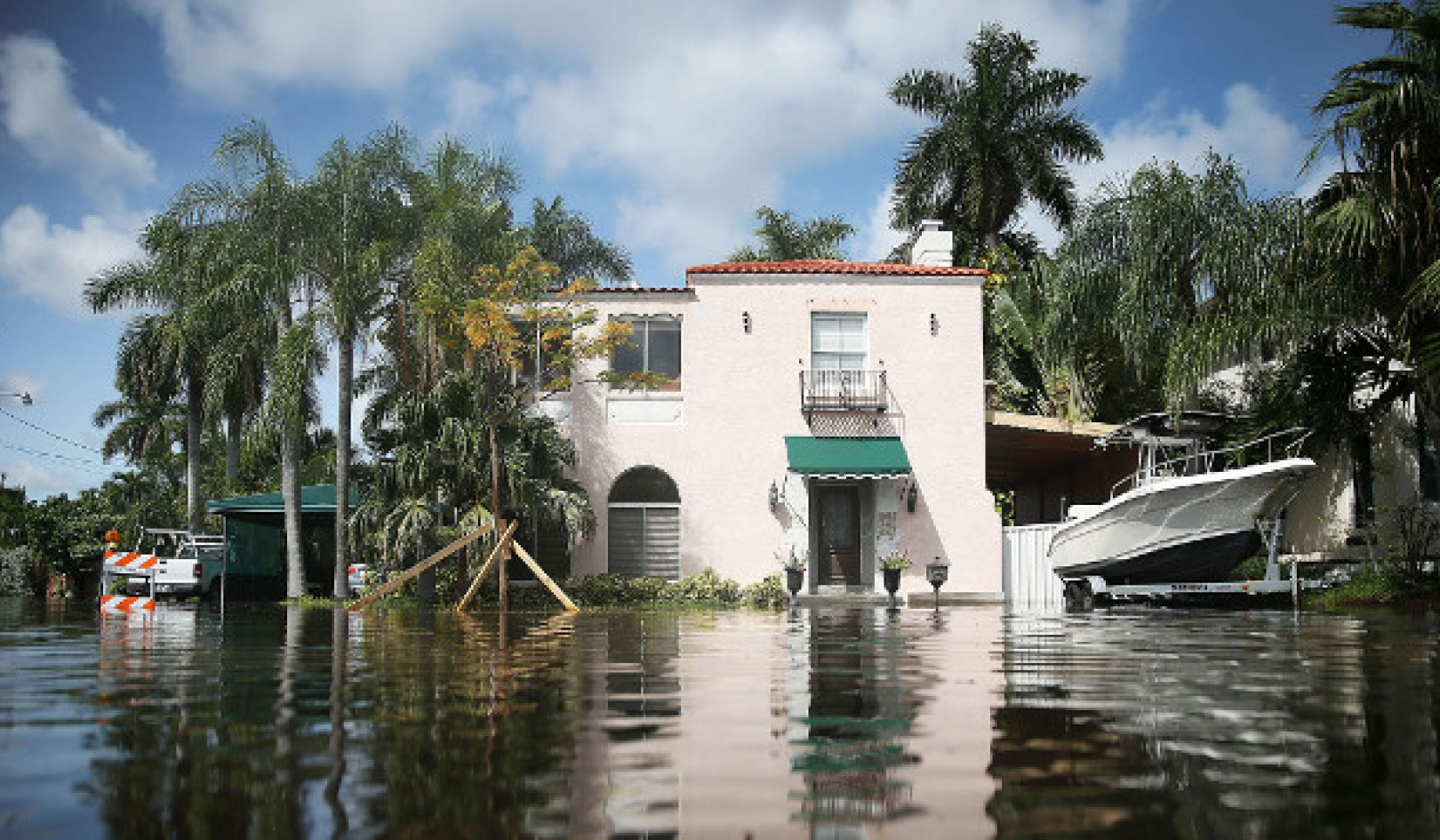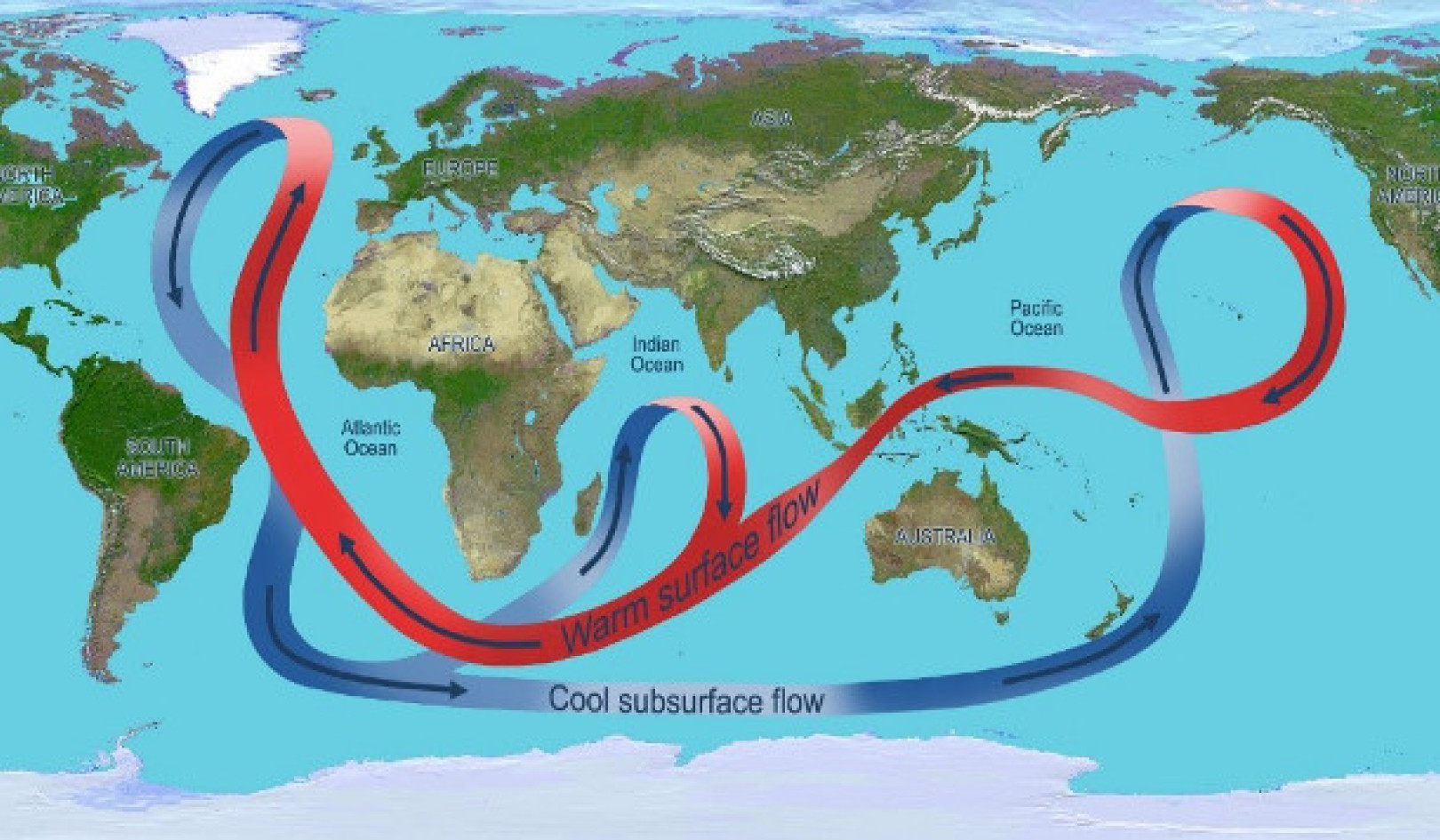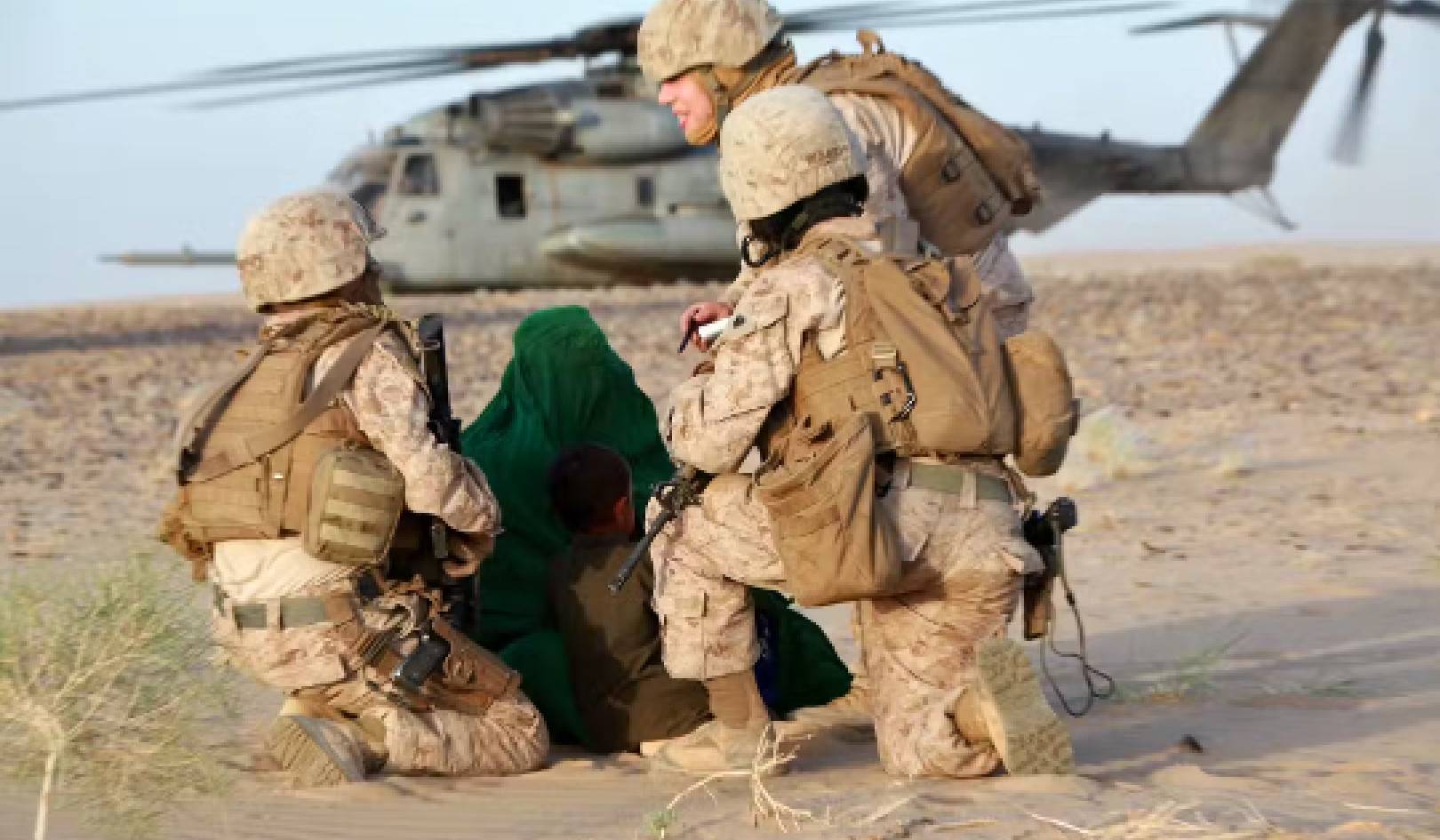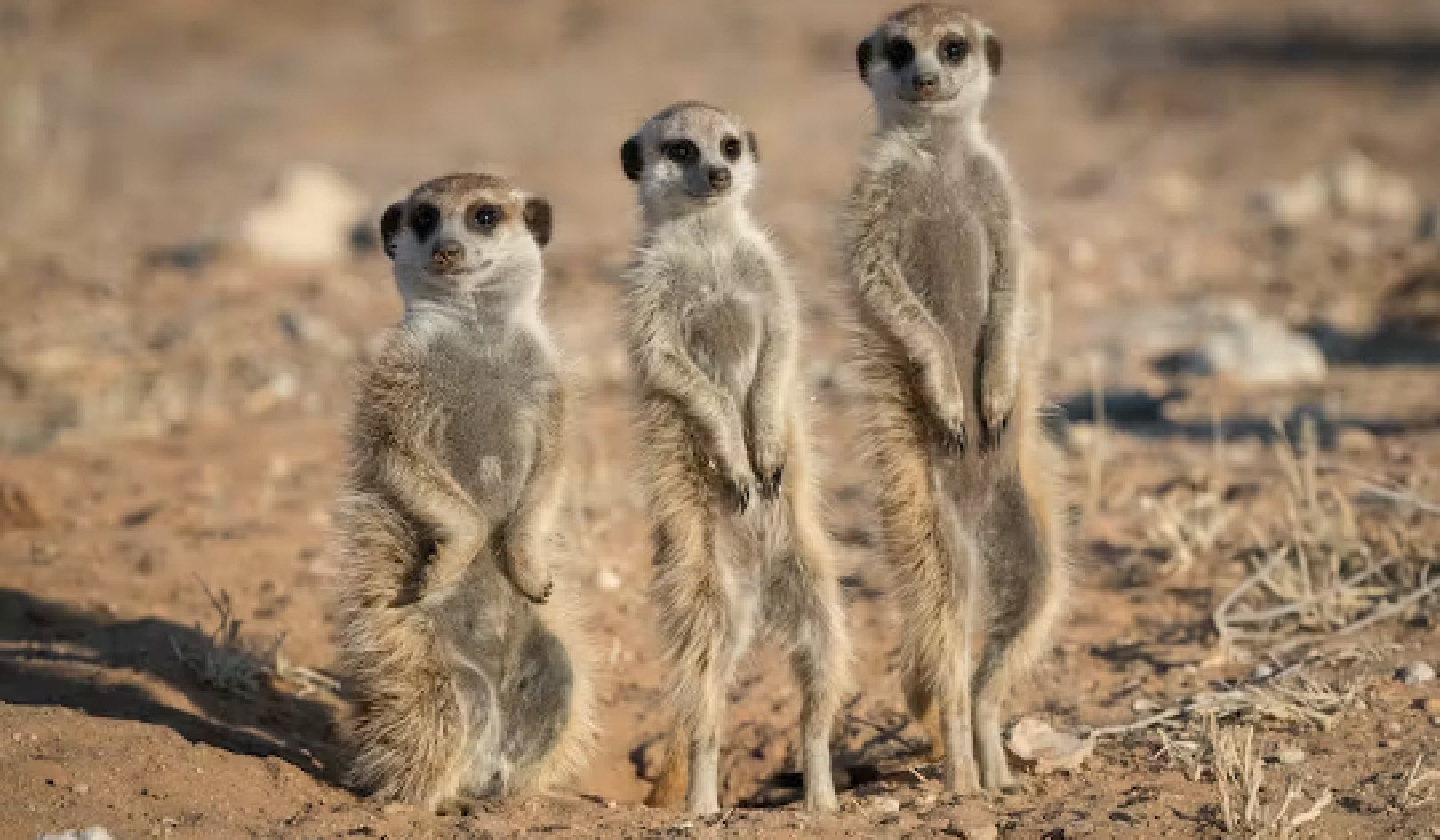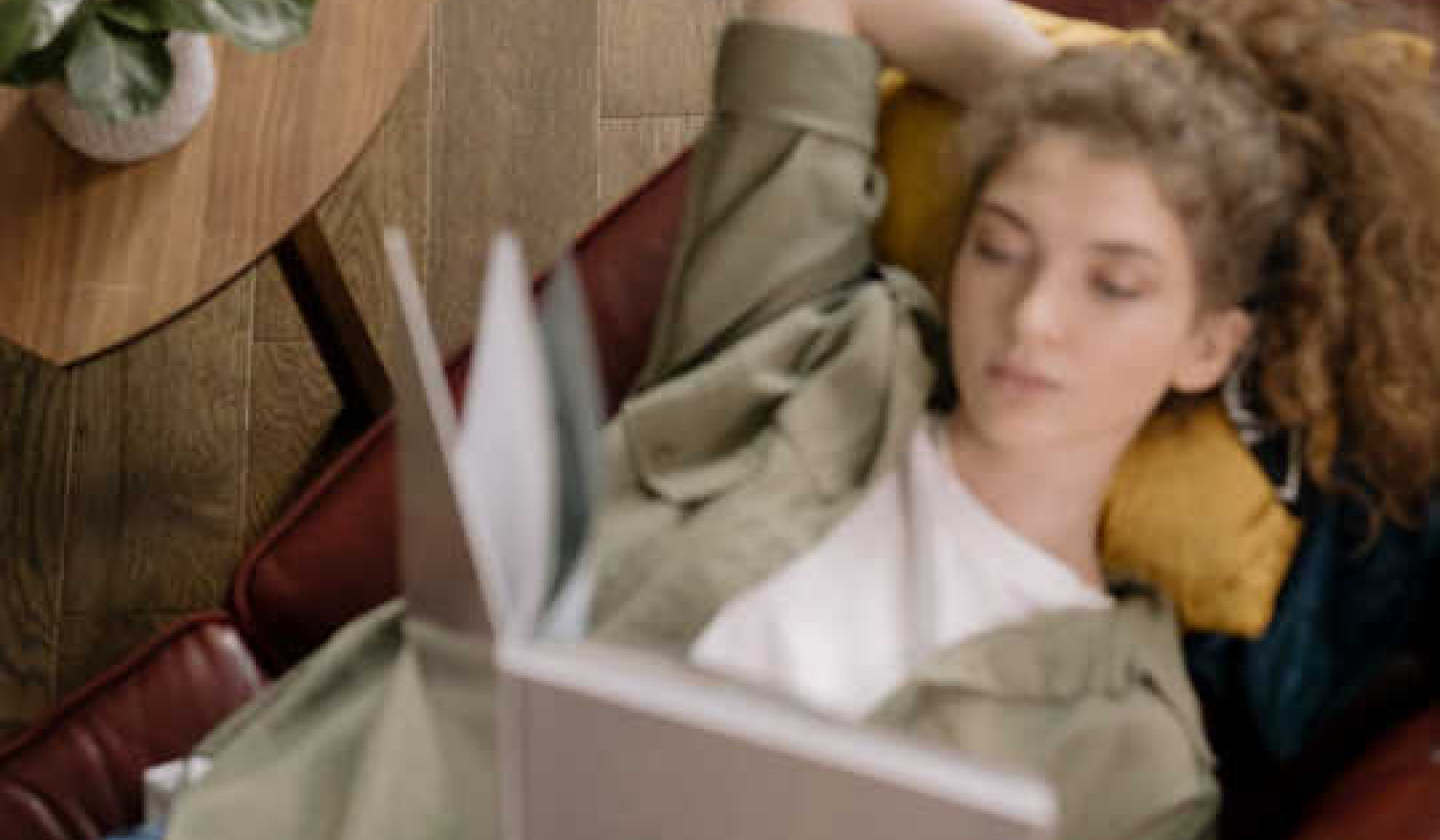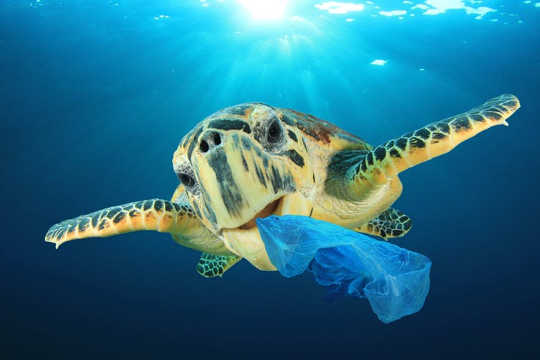
Sea turtle eating a plastic bag. from www.shutterstock.com
Plastic bags harm marine (and land) environments in a few ways.
Turtles (and other animals) may mistake plastic bags for food. Turtles like to eat jellyfish, and we think turtles eat the plastic bags because they resemble jellyfish.
When turtles eat plastic, it can block their intestinal system (their guts). Therefore, they can no longer eat properly, which can kill them. The plastics in their tummy may also leak chemicals into the turtle. We don’t know whether this causes long term problems for the turtle, but it’s probably not good for them.
How plastic impacts the ecosystems
Plastic bags can also smother corals and other seabed communities. When plastic bags end up in our oceans, animals (including seals, dolphins and seabirds) can get tangled up in them. An animal with a plastic bag around its neck will have trouble moving through the water, catching its prey or feeding, and escaping predators.
On land, plastic bags are an eyesore. They get stuck in trees, along fence lines, or as litter at our parks and beaches.
Many people don’t realise that plastic bags can also cause flooding. Previously in Ghana (in West Africa), plastic bags blocked storm water drains during a big rainstorm. This caused flooding so bad that people were killed.
Making plastic requires a lot of energy and work
Plastic bags can even be harmful before they are used. It takes a lot of resources and energy to create a plastic bag. A key ingredient is oil. As a fossil fuel, oil must be extracted from the ground. Do we want to use fossil fuel resources to make a product that is only used once (we call this a “single use plastic”)?
Many millions of barrels of oil are used to make plastic bags every year. A lot of energy is also used to make and transport plastic bags. It is better for the environment if we reduce our energy use.
The push towards plastic-free
Lately, lots of people recognise the impacts that plastic bags have, and they are working on alternatives. Many local and state governments have passed plastic bag bans here in Australia, which helps stop the use of single use plastic bags.
In fact, New South Wales is the only state in Australia where you can still get thin, single use plastic bags at the grocery store.
So, remind your parents to bring their reusable cloth bags whenever you go shopping. You just might save a turtle.
About The Authors
Britta Denise Hardesty, Principal Research Scientist, Oceans and Atmosphere Flagship, CSIRO and Qamar Schuyler, Research Scientist, Oceans and Atmospheres, CSIRO
This article was originally published on The Conversation. Read the original article.
Related Books:
at InnerSelf Market and Amazon


















